In today’s fast-paced world, sleep issues have become a common concern. According to the Centers for Disease Control and Prevention (CDC), around 35% of adults in the U.S. report not getting enough sleep on a regular basis. Many individuals struggle with falling asleep, staying asleep, or experiencing restful sleep, which can affect overall health and well-being. To combat this issue, people have turned to various sleep aids, including both traditional options like prescription medications and over-the-counter (OTC) drugs, as well as more natural alternatives such as CBD (cannabidiol). But the big question remains: which option is better for achieving restful sleep? In this article, we will explore the differences between CBD and traditional sleep aids, examining their effectiveness, safety, and potential benefits to help you make an informed choice.
What Are Traditional Sleep Aids?
Traditional sleep aids generally fall into two categories: prescription medications and over-the-counter (OTC) drugs. Prescription sleep aids are typically stronger and are intended for individuals suffering from chronic insomnia or other sleep disorders. Common prescription medications include:
- Benzodiazepines (e.g., Xanax, Ativan): These medications are often prescribed for anxiety, but they also have sedative properties that can help with sleep.
- Non-benzodiazepine sedative-hypnotics (e.g., Ambien, Lunesta): These drugs work by slowing down brain activity, helping users fall asleep faster.
- Antidepressants (e.g., Trazodone, Amitriptyline): Some antidepressant medications have sedative effects and are used off-label to treat insomnia.
- Antihistamines (e.g., Benadryl, Unisom): OTC antihistamines are often used as sleep aids due to their sedative side effects.
On the other hand, OTC sleep aids typically include medications like melatonin supplements or diphenhydramine (an active ingredient in many antihistamine-based sleep aids). These drugs are generally available without a prescription and are marketed as easy solutions for occasional sleep disturbances.
What Is CBD and How Does It Work for Sleep?
CBD, or cannabidiol, is a naturally occurring compound found in the cannabis plant. Unlike THC (tetrahydrocannabinol), which is the psychoactive component of cannabis, CBD is non-psychoactive, meaning it does not produce a “high.” Over the past few years, CBD has gained popularity for its potential therapeutic benefits, including its ability to help with anxiety, pain relief, and improving sleep quality.
CBD interacts with the body’s endocannabinoid system (ECS), a complex system of receptors and signaling molecules that regulate various physiological processes, including mood, sleep, and pain. It is believed that CBD helps to promote balance within the ECS, which in turn can enhance relaxation and reduce factors that may interfere with restful sleep, such as anxiety or pain.
CBD vs. Traditional Sleep Aids: Effectiveness for Sleep
When comparing the effectiveness of CBD to traditional sleep aids, it’s important to consider how each option works in the body.
Traditional Sleep Aids
Traditional sleep medications, such as prescription drugs or OTC antihistamines, are designed to produce immediate sedative effects. They work by either depressing the central nervous system (CNS) or blocking certain receptors in the brain to induce sleepiness. While these medications can help individuals fall asleep quickly, they often come with a range of side effects, including:
- Daytime grogginess or drowsiness
- Dependence or withdrawal symptoms (especially with benzodiazepines)
- Cognitive impairment or memory problems
- Tolerance, meaning individuals need higher doses over time to achieve the same effect
- Sleepwalking or unusual behaviors (in some cases)
As a result, many users of traditional sleep aids find themselves caught in a cycle of dependence, requiring the medication to fall asleep each night. Additionally, the sleep induced by these medications may not always be restful, as they can interfere with the natural sleep cycle, particularly with stages of deep or REM sleep.
CBD for Sleep
CBD has a different approach when it comes to promoting restful sleep. Rather than forcing the body to sleep, CBD works by helping to address the underlying causes of poor sleep, such as anxiety, stress, or chronic pain. By promoting relaxation and a sense of calm, CBD can help individuals fall asleep naturally and achieve more restorative sleep.
Research on CBD’s effects on sleep is still in its early stages, but several studies suggest that CBD may be effective for improving sleep in individuals with conditions such as anxiety, insomnia, and chronic pain. A 2019 study published in The Permanente Journal found that 66.7% of participants experienced improved sleep scores after taking CBD for one month. Other studies have suggested that CBD can help people fall asleep faster, stay asleep longer, and experience fewer nighttime awakenings.
Additionally, CBD’s lack of psychoactive effects means that users are less likely to experience the grogginess or cognitive impairment associated with traditional sleep medications. CBD also does not carry the same risk of dependence or tolerance buildup, making it a safer long-term option for some individuals.
Safety and Side Effects: CBD vs. Traditional Sleep Aids
When it comes to safety, traditional sleep aids can present several risks, particularly when used long-term or in combination with other medications. As mentioned, prescription sleep medications can lead to dependence, withdrawal symptoms, and tolerance. Overuse of OTC sleep aids like antihistamines can cause dizziness, confusion, and even urinary retention, especially in older adults. Furthermore, sleep medications can interact with other drugs, leading to adverse effects.
In contrast, CBD is generally well-tolerated, with most individuals experiencing minimal side effects. However, some people may experience mild side effects, including:
- Drowsiness or fatigue (especially with high doses)
- Dry mouth
- Changes in appetite or weight
- Diarrhea (rare)
CBD is also known to interact with certain medications, particularly those metabolized by the liver’s cytochrome P450 enzyme system. Therefore, it’s important to consult with a healthcare provider before starting CBD, especially for individuals taking prescription medications.
Which Is the Better Option for Restful Sleep?
The choice between CBD and traditional sleep aids depends on your personal health needs, preferences, and any underlying conditions. Here’s a breakdown to help guide your decision:
- For occasional sleeplessness or stress-induced sleep problems: CBD may be a good option, as it addresses the root causes of poor sleep, such as anxiety or pain. It offers a more natural, non-habit-forming alternative to OTC medications.
- For chronic insomnia or severe sleep disorders: Traditional sleep medications may be necessary for immediate relief, especially if sleep disruptions are due to serious conditions like sleep apnea or chronic insomnia. However, these should be used under the guidance of a healthcare professional to avoid dependency or long-term side effects.
- For individuals seeking a long-term solution: CBD offers a safer long-term solution for sleep issues, as it is non-addictive and doesn’t come with the cognitive impairment or tolerance problems that often arise with traditional sleep aids.
Conclusion
While traditional sleep aids can be effective for helping individuals fall asleep quickly, they often come with a range of side effects, dependency risks, and potential disruption to the natural sleep cycle. CBD, on the other hand, offers a more natural alternative with fewer side effects, helping to address the root causes of sleep disturbances and promoting relaxation. For those seeking a long-term, safer option, CBD might be the better choice for restful sleep. However, it’s always best to consult with a healthcare provider before making any changes to your sleep regimen, especially if you have pre-existing health conditions or take other medications.
If you’re anything like me, you know how elusive a good night’s sleep can be sometimes. That’s why I decided to give Just CBD’s sleep products a try, and let me tell you, the experience has been pretty interesting! Here’s my breakdown of the different options I’ve tried.
Nighttime CBD Oil Tincture with Melatonin
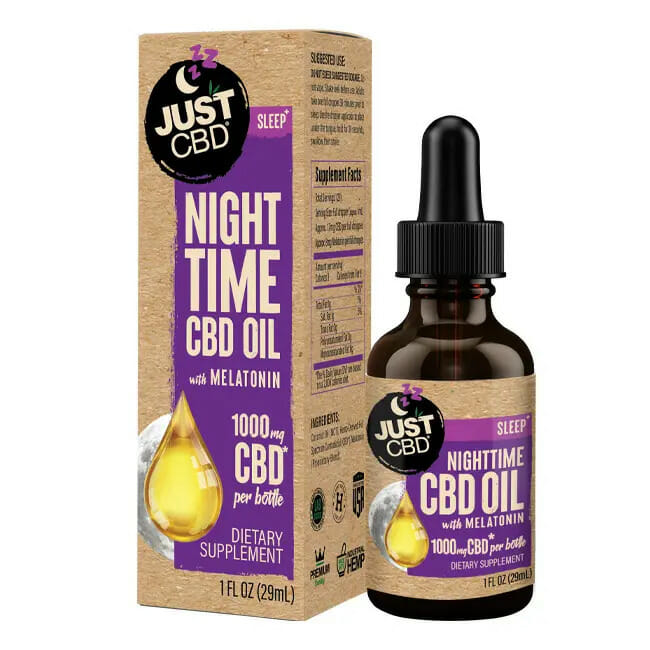
I started with the CBD oil tincture with melatonin. I’ve always been a fan of tinctures because they’re easy to use and pretty quick to kick in. Just a few drops under the tongue, and within about 30 minutes, I started feeling relaxed. The melatonin gives that extra push, and before I knew it, I was drifting off into a peaceful sleep. The taste is a little earthy, but nothing too overpowering. I’d say this is a solid option if you prefer a more customizable approach to your sleep routine!
What I liked: Fast-acting, easy to use, and helped me feel calm.
What I didn’t like: The earthy taste can be a little off-putting, but that’s pretty typical with oils.
CBD Gummies for Sleep
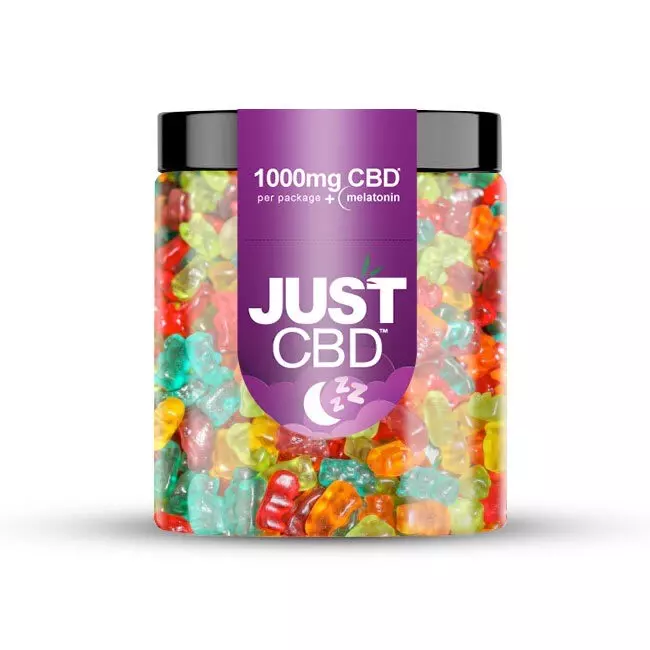
Next up, I tried the CBD gummies for sleep. These little guys are packed with a nice dose of CBD, and they taste pretty good too! I took one gummy about 30 minutes before bed. They’re super convenient—no measuring or worrying about dosage. The effects were gradual, and I felt that deep relaxation settling in. I really enjoyed how they kept me calm and not overly drowsy. Perfect for winding down!
What I liked: Delicious, easy to take, and a more mellow sleep experience.
What I didn’t like: It takes a little longer to kick in compared to the tincture, but it’s a trade-off for the convenience.
CBD Gummies for Sleep Extra Strength
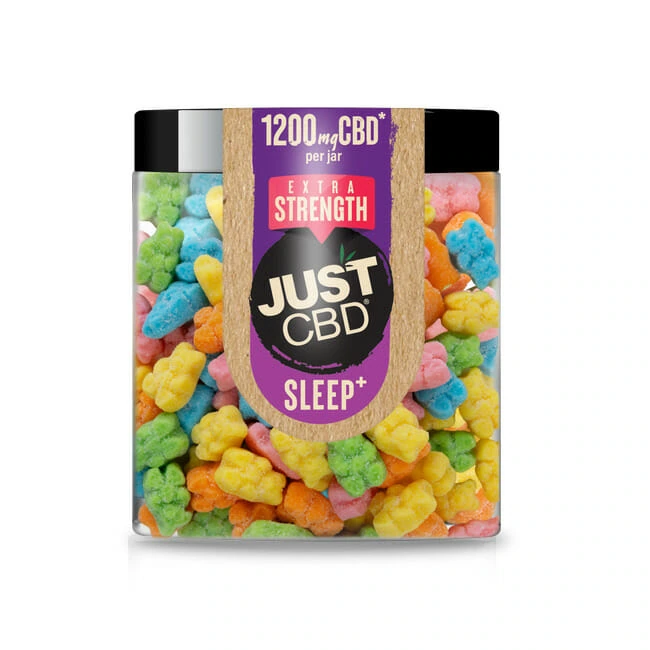
Feeling like I needed something stronger, I opted for the extra-strength sleep gummies. These are great if you’re someone who really struggles to fall asleep. They’re packed with both CBD and melatonin, and let me tell you—they work fast. I took one right before bed, and I was out like a light. The sleep was deep and uninterrupted, which was amazing. I woke up feeling well-rested and refreshed.
What I liked: Super effective for a deep, uninterrupted sleep.
What I didn’t like: They work so well that I sometimes wake up feeling a little groggy if I don’t get a full 7-8 hours of sleep.
Full Spectrum CBD Capsules with Melatonin
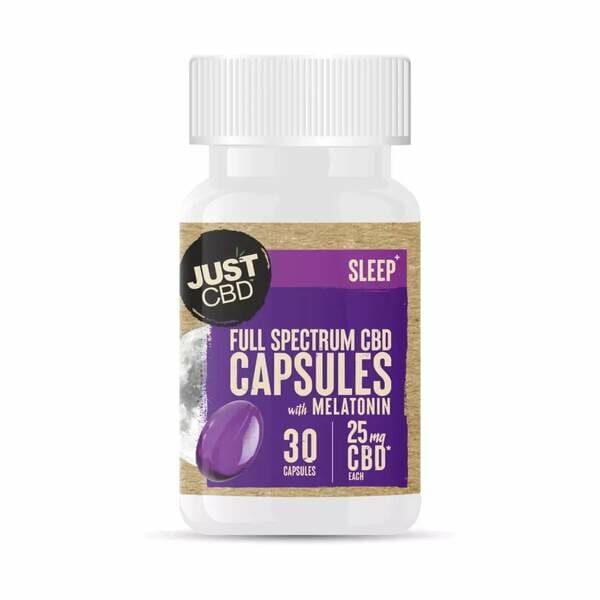
Lastly, I tried the full-spectrum CBD capsules with melatonin. Capsules are another great option for convenience, and I liked that these were full-spectrum, meaning they contain a wider range of cannabinoids. I took one of these with some water, and I felt that calming effect kick in about an hour later. I found this to be a little less potent than the extra-strength gummies, but still very effective for a good night’s sleep. If you’re looking for something a bit more subtle, this is a great option.
What I liked: Full-spectrum, convenient, and helped me get a solid night’s sleep without being too heavy.
What I didn’t like: Not as strong as the gummies, but that could be a pro if you want something more subtle.
Overall Thoughts
Each of these products has its own perks depending on what you’re looking for. The tincture is fast-acting, the regular gummies are convenient and tasty, the extra-strength gummies are ideal for those who need a little extra help, and the capsules are great if you prefer something discreet and mild. My personal favorite has to be the extra-strength gummies because they knock me out in the best way, but the tincture is a close second for its speed and relaxation.
- Comparing CBD Gummies vs. CBD + THC Gummies: Which Is Right for You? - December 20, 2024
- Benefits of THC Vaping: Health, Convenience, and Flavor - December 20, 2024
- ELF THC vs. Delta 9: Key Differences and Similarities - December 20, 2024
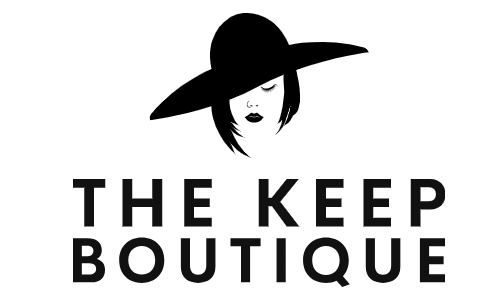

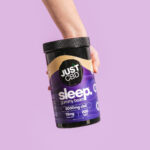
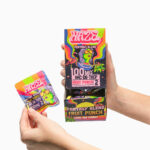


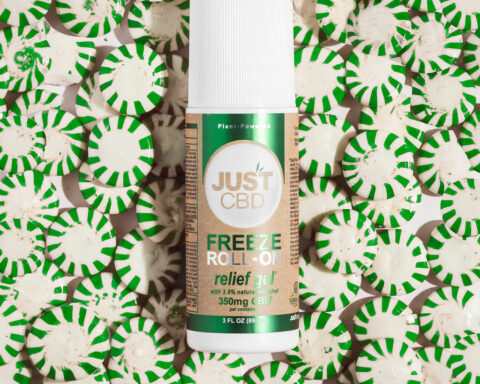

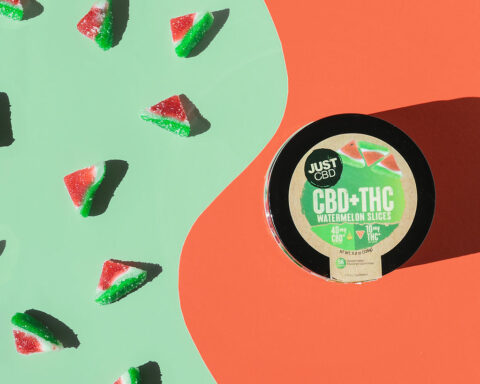
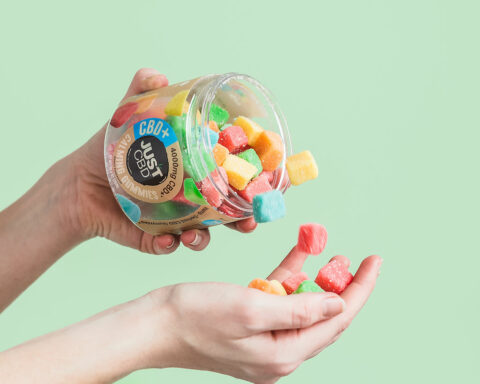
Follow Me